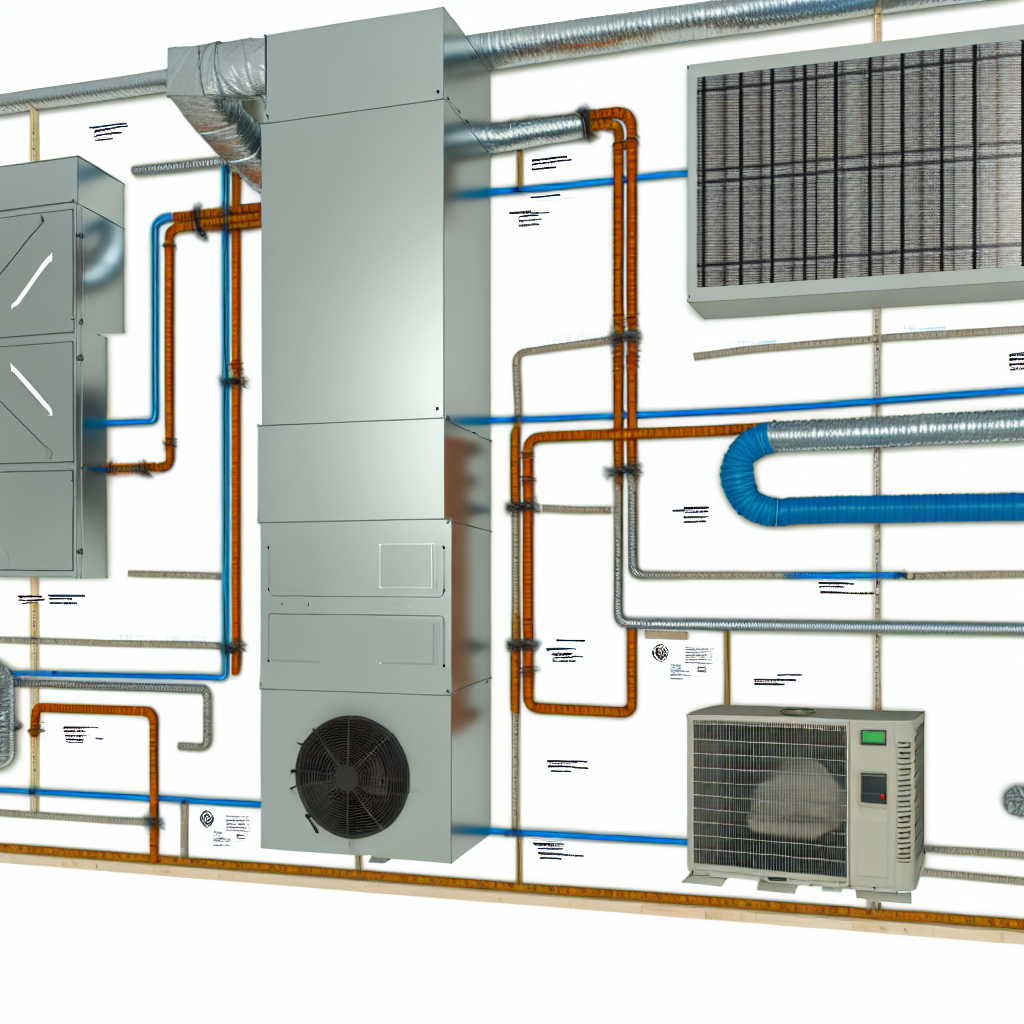Published: Oct 14, 2024

When it comes to keeping your home cozy during the colder months, having an efficient and reliable heating system is crucial. However, with so many options available, choosing the right heating system for your home can be overwhelming. To help you make an informed decision, it's essential to understand the different types of heating systems and their unique features.
Furnaces are one of the most common types of heating systems found in homes. They work by blowing heated air through ducts to evenly distribute warmth. Furnaces can be powered by electricity, natural gas, or oil, offering varying levels of efficiency and cost.
Boilers heat water to produce steam or hot water, which is then circulated through radiators or baseboard heaters. This type of heating system is known for its consistent and comfortable heat output. Boilers can run on natural gas, oil, or electricity.
Heat pumps are versatile systems that can provide both heating and cooling by transferring heat between the indoors and outdoors. They are energy-efficient and environmentally friendly alternatives to traditional heating systems. Heat pumps are available in air-source, ground-source (geothermal), and ductless mini-split configurations.
Radiant heating systems work by warming the floors, walls, or panels in your home to emit heat. This method offers consistent warmth and can be more energy-efficient than forced-air systems. Radiant heating can be installed using hydronic (water-based) or electric systems.
Ductless mini-split systems are ideal for homes without ductwork or those seeking zoned heating. These systems consist of an outdoor compressor unit connected to indoor air-handling units, allowing for customized temperature control in different areas of the home. Ductless mini-splits are energy-efficient and offer quiet operation.
Electric space heaters are portable units that are designed to heat specific areas or rooms in your home. While they are convenient for supplemental heating, they are not as energy-efficient as central heating systems. Electric space heaters come in various styles, including convection, radiant, and ceramic heaters.
Consider the availability and cost of different fuel sources in your area. Natural gas is often a popular choice due to its affordability and efficiency, but electricity and oil are also viable options.
Look for heating systems with high energy efficiency ratings to reduce energy consumption and lower utility bills. Energy-efficient systems can also help minimize your carbon footprint.
Ensure that the heating system you choose is appropriately sized for your home. An undersized system will struggle to heat your space efficiently, while an oversized system can lead to energy waste and discomfort.
Different heating systems have varying maintenance needs. Regular upkeep is essential to ensure optimal performance and extend the lifespan of your system. Consider the maintenance tasks and costs associated with each type of heating system.
Factor in the initial cost of the heating system, installation expenses, and long-term operating costs. While it may be tempting to opt for the cheapest option upfront, consider the overall value and efficiency of the system in the long run.
By understanding the different types of heating systems available and considering key factors such as fuel source, energy efficiency, size, maintenance requirements, and cost, you can select the right heating system for your home that suits your comfort needs and budget.
**

Our expert technicians are ready to assist you 24/7!
Contact Us Today!Read our latest articles for helpful information about heating, cooling, and air quality.
When choosing between a furnace and a heat pump for your home, consider factors like climate, energy costs, and budget...
Read MoreInvesting in energy-efficient HVAC systems like variable-speed air conditioners, heat pumps, and smart thermostats can...
Read MoreRegular HVAC maintenance is essential for improving energy efficiency, extending the lifespan of your system, enhancing...
Read MoreImplement these 10 tips to enhance the air quality in your home, promoting a healthier living environment for you and y...
Read More